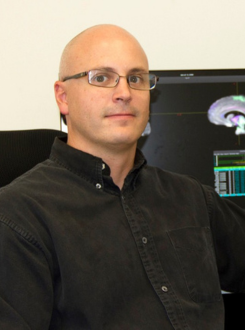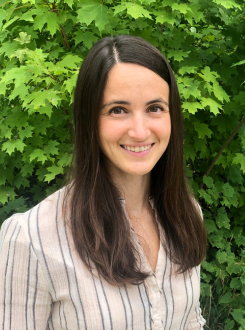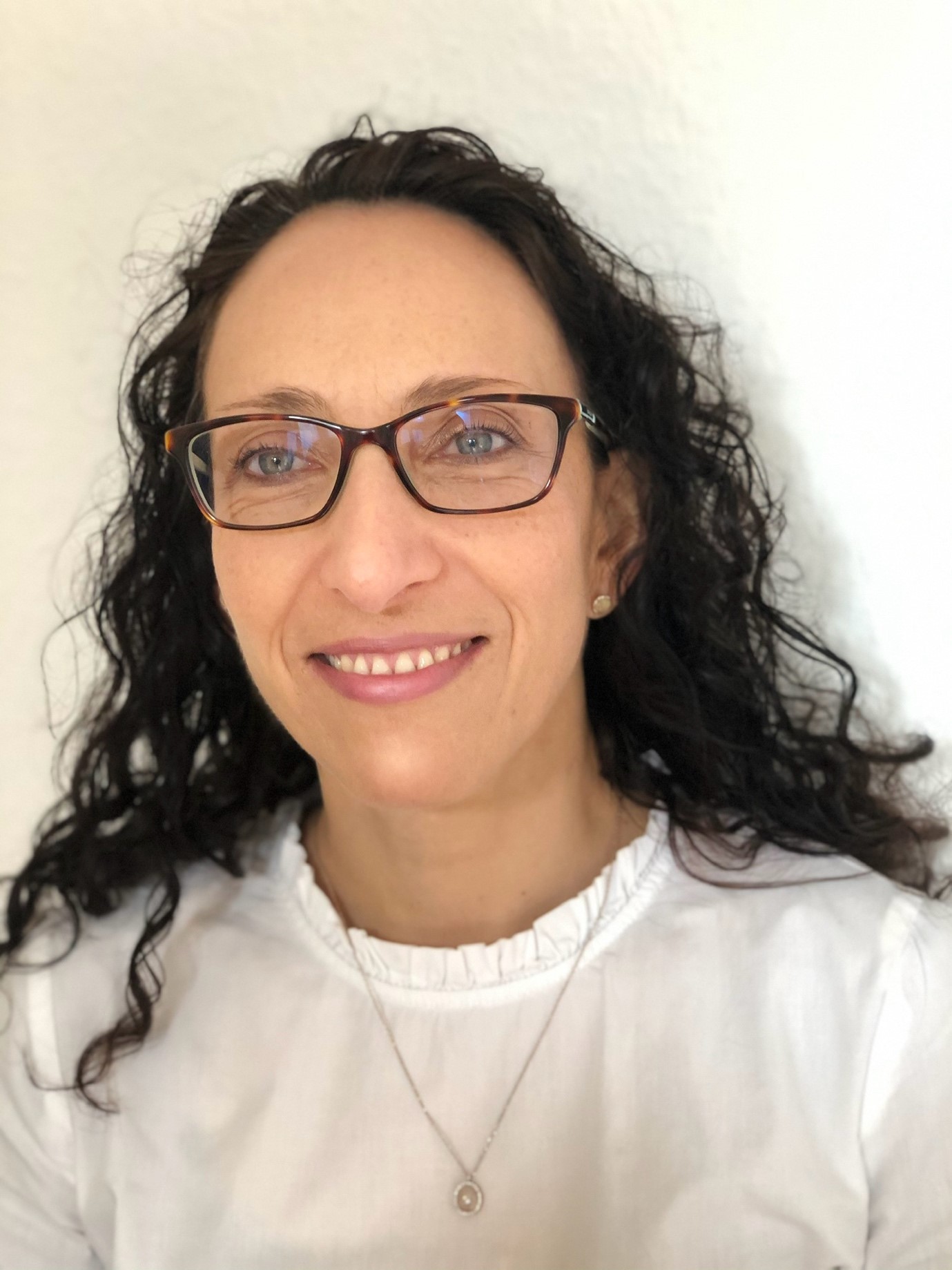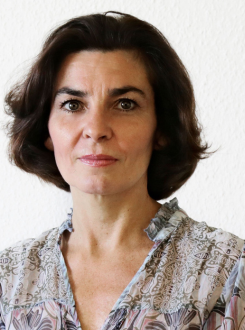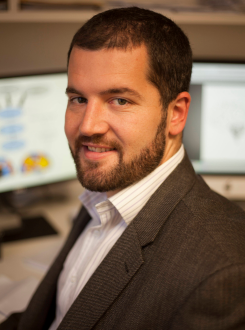
Talairach Lecture

Zarin Machanda, PhD
Assistant Professor, Anthropology
Usen Family Career Development Professorship at Tufts University
Assistant Professor, Biology
Zarin Machanda's research revolves around understanding the factors that shape the quality and development of social relationships among wild chimpanzees. Her work so far has focused mostly on the evolution of male-female relationships, male-male cooperation (especially cooperative hunting), and how chimpanzees use communication to mediate social relationships. Most recently, she has started a long-term project to study infant and juvenile chimpanzees and how they develop sex-typed adult behaviors. Zarin is the Director of Long-term Research at the Kibale Chimpanzee Project, an organization that for the last 30 years has conserved and protected the Kanyawara community of chimpanzees living in Kibale National Park, Uganda. She is also on the Board of the Kasiisi Project, a community development organization in Uganda that works with over 9000 school children living around Kibale National Park. Zarin holds a secondary appointment in the Department of Biology.
Keynote Speakers
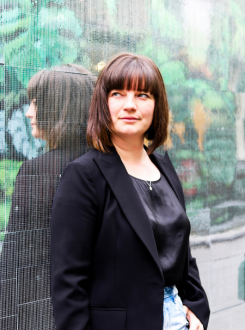
Emma Burrows, PhD.
Research Team Head
Translational Behaviour Group
Dr. Emma Burrows leads a team of behavioural scientists, psychologists and engineers, in an extensive program of work focussing on preclinical models of complex brain disorders including Autism Spectrum Disorder, Parkinson’s and Dementia. She is a recognised expert in rodent touchscreen testing and applies this technique to assess cognition in mice expressing patient-associated gene variants. Her team use this sophisticated behavioral analysis to assess cognitive domains in mice in similar ways to clinical methods of assessment. Using these tools, they aim to understand how complex brain disorders arise and how to treat them. Dr Burrows is passionate about advancing diversity and inclusion in science and leads efforts to change the culture of academia to one where more people can thrive.
Luis Concha, PhD.
Associate Professor
National Autonomous University of Mexico
Dr. Luis Concha is a researcher interested in using quantitative MRI, particularly (but not limited to) diffusion-weighted MRI, for the study of neurological disorders, with special interest in epilepsy. Along with the great people in his lab, Dr. Concha tries to understand what causes specific brain lesions to be epileptogenic, how this process evolves over time, and how it affects cognitive abilities. Some of these questions can be addressed in clinical research, but when it is not possible, we turn to animal models, where we have more control, and are able to use other methods on top of MRI. So much work on the temporal lobe has piqued Dr. Concha’s interest in how the auditory cortices make sense of acoustic stimuli that vary over time, a topic we have investigated using functional MRI. Dr. Concha joined the National Autonomous University of Mexico in 2010 and started the Brain Connectivity Laboratory in 2012. The type of work that he most enjoys is multidisciplinary by nature—he has the fortune of having great collaborators.
Emily Finn, PhD.
Assistant Professor
Darthmouth College
Emily Finn is an assistant professor in the Department of Psychological and Brain Sciences at Dartmouth College, where she directs the Functional Imaging and Naturalistic Neuroscience (FINN) Lab. She completed her PhD in neuroscience at Yale University, and her postdoctoral training at the National Institute of Mental Health. Before that, she received a B.A. in linguistics, also from Yale. Emily has pioneered techniques such as functional connectome fingerprinting and connectome-based predictive modeling for predicting individual behaviors from functional brain connectivity. Her current work is focused on how within- and between-individual variability in brain activity relates to appraisal of ambiguous information under naturalistic conditions such as watching movies or listening to stories. She was named a Rising Star by the Association for Psychological Science and has also received the NIMH Director’s Award for Scientific Contributions
Seong-Gi Kim, PhD.
Director of Neuroscience Imaging Research Center in the Institute for Basic Science
Emeritus Professor of Biomedical Engineering in Sungkyunkwan University
Seong-Gi Kim, PhD, is the Director of Neuroscience Imaging Research Center in the Institute for Basic Science (IBS), and Emeritus Professor of Biomedical Engineering in Sungkyunkwan University (SKKU). He did his graduate works on in vivo NMR spectroscopy (1984-88) at Washington University, followed by postdoctoral training in structural biology at the University of Washington. In 1991, he joined the Center for Magnetic Resonance Research in the University of Minnesota, actively participating in one of the first human fMRI studies in 1992. After advancing to the rank of full Professor, he moved to the University of Pittsburgh in 2002.
In 2009, he was appointed as the inaugural Paul C. Lauterbur Chair in Imaging Research, established in honor of Nobel laureate and MRI inventor Paul C. Lauterbur. He returned to Korea in 2014 to establish a new neuroimaging center for multi-modal and multi-species research. His major research focus is to develop magnetic resonance imaging techniques for measuring brain physiology and function, to elucidate the relationships between neural activity and hemodynamic responses using animal models, and to apply imaging tools for answering questions in systems neuroscience.
Lucia Melloni, PhD.
Research Professor
New York University
Research Group Leader
Max Planck Institute
Lucia Melloni leads the Neural Circuits, Consciousness, and Cognition Research Group at the Max Planck Institute for Empirical Aesthetics in Frankfurt, and holds a position as Research Professor in the Department of Neurology at NYU Grossman School of Medicine. Melloni's research is pioneering in the field of consciousness, seeking to unravel the complexities of human experience—why and how we perceive the world in the ways that we do, the potential for modifying these experiences through learning, and the intersection of consciousness with cognitive processes such as attention, expectations, learning, and memory.
Melloni champions the principles of collaborative and open science, which are central to her research philosophy. With collaborators, she spearheads a novel project to advance scientific discoveries on the neural basis of conscious perception. This project unites for the first time scientists from complementary disciplines within a common framework of ‘adversarial collaboration’, with the common goal to arbitrate between established theories on consciousness. By combining multiple imaging and electrophysiology approaches in a rigorous, large-scale project, spanning multiple laboratories across the globe, it provides an example of a powerful and well-orchestrated inter-disciplinary project that aims to unravel the neural basis of consciousness and what makes us humans.
Nicola Palomero-Gallagher, PhD.
Senior Researcher
Institute of Neuroscience and Medicine Research Center
Professor Nicola Palomero-Gallagher graduated 1990 from the Sciences Faculty of the Universidad Autónoma of Madrid, Spain. She was a PhD student at the C. & O. Vogt-Brain Research Institute of the Heinrich-Heine University Düsseldorf, Germany, between 1992 and 1999, and received the PhD in 1999. Since 2000 she works at the Institute of Neuroscience and Medicine (INM-1), Research Center Jülich, Germany, where she is a Senior Researcher and Leader of the research group “Rezeptoren”.
She is a senior editor of Brain Structure and Function. Her research is centered on the structural (cyto- and fiber-architecture) and molecular (receptor-architecture) organization of the human, non-human primate and rodent cerebral cortex, with particular focus on the cingulate cortex. Her major goal is to understand the cyto- and receptor-architectonic basis of cortical segregation and interareal interactions, with emphasis on their relationship with function.
Mac Shine, PhD.
Joint-NHMRC Emerging Leadership Fellow/Bellberry Fellow at the University of Sydney
Mac is a Joint-NHMRC Emerging Leadership Fellow/Bellberry Fellow at the University of Sydney. His career goal is to understand how information is processed in the brain, with a particular interest in the neural mechanisms underlying cognition and its’ interaction with perceptual and motor systems. By using a combination of computational models and advanced analysis of functional brain imaging data, he has published over 150 papers in peer reviewed journals, including many in high-impact international journals (most notably Nature, Nature Reviews Neuroscience, Nature Neuroscience, Neuron, Nature Communications, Proceedings of the National Academy of Science, Brain and Progress in Neurobiology) and including both theoretical and empirical work. His work has also been widely recognized by the field, with over 10K citations and an H-index of 58.
